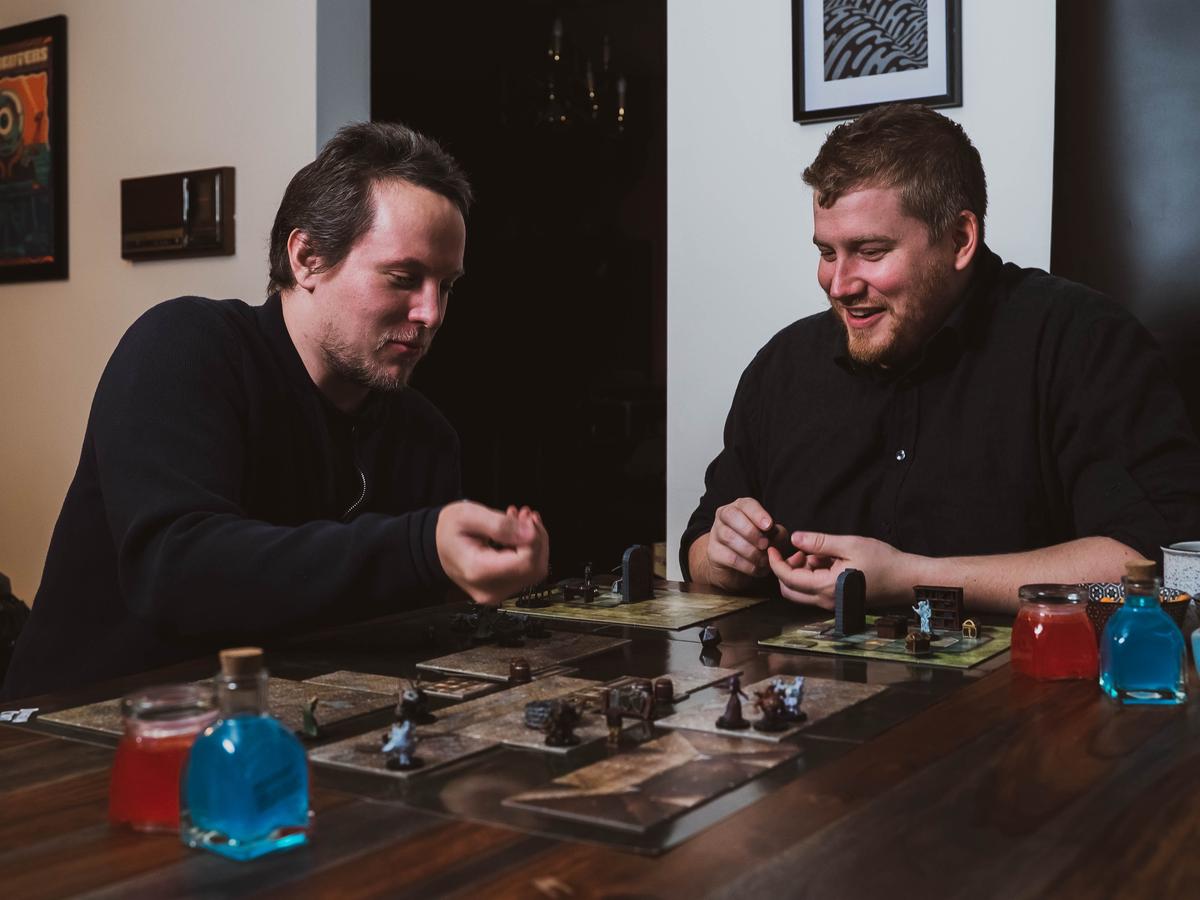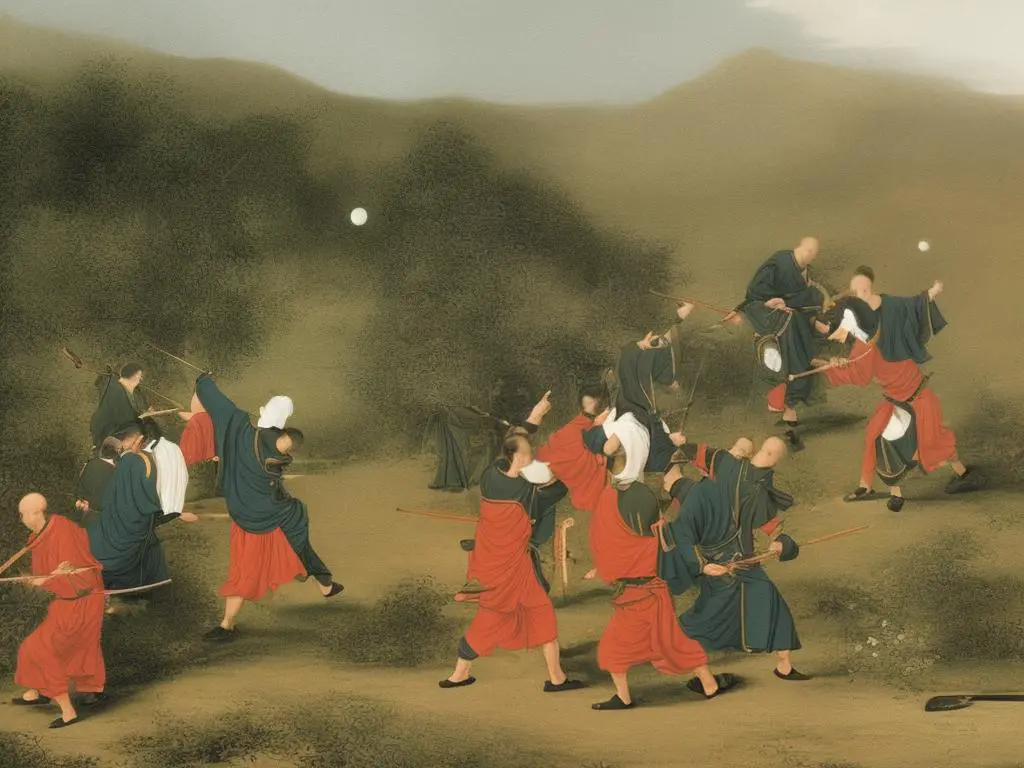Ghost Stories, a four-player board game, is a thrilling journey of strategy, collaboration, and suspense that tests the mettle of players against hordes of ghosts. Mastering this game necessitates a solid grasp of rules, efficient strategy execution and lots of practice. It can be quite an undertaking, but fear not – this guide is designed to equip new players with a comprehensive understanding of the game’s rules and modes, as well as providing effective tips and strategies for gameplay. Prepared to embark on an exciting journey to become a proficient Ghost Stories player? Your adventure begins here.
Understanding the Rules
Getting Started with Ghost Stories
Ghost Stories is a cooperative boardgame where you and up to three other players take on the roles of Taoist monks, who must defend a vulnerable village from an onslaught of deadly ghosts. As the game progresses, you’ll use your special abilities, activate village tiles, engage in dangerous combat, and perform exorcisms to defeat the ghosts and protect your village. To win the game, your team must survive until the incarnation of Wu-Feng arrives and defeat him.
Understanding the Set-Up
Begin by arranging four game boards in the center of your play area, one for each player, with the player’s color facing up. This is where the players’ Taoist monk figures will be placed. However, in a fewer than four player game, the unused boards will be placed in the middle with the neutral (white) side face up.
Surround the central boards with the nine village tiles placed randomly in a 3×3 grid. Shuffle the Ghost cards and form a draw pile. Each player receives a Yin-Yang token, four Qi tokens and one Tao token of each color. The incarnation of Wu-Feng cards are placed at the bottom of the Ghost deck to ensure they arrive last. Lastly, the Buddha figures, Enfeeblement mantra tokens, and additional Qi and Tao tokens, are placed within reach.
Gameplay: Releasing Ghosts and Taking Actions
The game progresses in rounds. On your turn, you reveal a Ghost card and place it on the appropriate player’s board, causing various effects. Then, you take your actions.
Ghost Cards have colors which correlate to the color of the board they are placed. They also have special abilities or curses that activate when they appear, every turn, or when they are exorcised from your board.
During your action phase, you have several options: you can Move to an adjacent village tile; call for Help by activating a village tile; or perform an Exorcism to remove a Ghost from your board or a neighbouring Taoist’s board. To do the latter, you must roll three combat dice and match the Ghost’s resistance level with Tao tokens, dice results, or your own resistance.
Special Abilities, Neutral Boards and More
Each Taoist monk has a unique special ability that grants advantages during play. For example, the green Taoist can perform exorcisms in two separate locations during the same turn.
Neutral boards, used when fewer than four players are playing, provide a unique advantage. They hold two Ghost positions and they don’t draw Ghost cards. But Taoists can take actions on neutral boards, making them valuable strategic elements.
Some Village tiles have special features that can help the Taoists. For example, the Temple allows you to take a Buddha figure which you can place on an empty Ghost spot to automatically exorcise any Ghosts placed on it later.
Conditions for Winning
Survival is essential in Ghost Stories. The primary path to victory is surviving until the incarnation of Wu-Feng is revealed. Then, the monks must exorcise him to win the game. However, if three village tiles or all Taoists are haunted (i.e., overrun by Ghosts), the players lose.
Equally, if the Ghost deck runs out before Wu-Feng appears, it’s game over. So approach every decision in Ghost Stories with both strategy and courage. Good luck, Taoists!

Effective Strategies and Tips
Understanding the Basics of Ghost Stories
Ghost Stories is a cooperative game where players play as Taoist monks aiming to protect their village from being overrun by ghosts. To play effectively, it’s vital to comprehend the game’s rules and principles. Understand that ghosts arrive from four different boards, each representing a dimension of North, South, East, or West. The middle is the village with nine tiles, and each has a different ability that players can use.
Strategize on Ghost Entrance
One important strategy to consider is to monitor the ‘ghost entrance’. In Ghost Stories, you can trigger the ghost arrival, and knowing how it works can be to your advantage. The ghost enters the game from the Tao color board of the player who draws it. Analyze the potential aftermath when a ghost arises, and decide whether it is important to take care of it immediately or if it can be handled later.
Effective Use of Taoists’ Special Abilities
Each Taoist has a unique ability. One strategy is to utilize these abilities against the ghosts. For example, the yellow Taoist has a power that allows you to activate any tile, while the green one has the ability to move other Taoists. Using these powers strategically could help you manage the threats and exorcise the ghosts effectively.
Manage Your Qi (Life) Strategy
In Ghost Stories, each player begins with four Qi. Therefore, you should always remember to manage your Qi, especially early in the game, because you never know when you will need it. Instead of constantly rushing to defeat ghosts, focus on buying time and minimizing the damage to your Qi.
Work Cooperatively with Co-Players
Since Ghost Stories is a cooperative game, it’s crucial to coordinate with your team effectively. Share your ideas, collaborate on strategies, and let each other know when you are in trouble. Keep in mind that you need each other’s abilities and help to win the game, so working together is essential.
Take Advantage of Dice Rolls and Villager’s Abilities
Another way to increase your chances of winning is by using your dice rolls effectively. Sometimes it is better to save your resources and count on your roll to defeat a ghost. In addition, each villager has a unique ability. Learn to use these abilities to help you exorcise ghosts, restore Qi, or gather Tao tokens.
Strategize on Board Positioning
Correct positioning is a good strategy in Ghost Stories. Have at least one player close to or in the middle of the board to access village abilities. Also, consider the entry points for ghosts when positioning your players. It could be beneficial to keep a player near a side threatened by powerful ghosts.
In Ghost Stories, understanding the game’s mechanics, utilizing the Taoists’ abilities, and following these strategic tips can help you and your co-players exorcise those ghosts effectively. Lastly, always remember that cooperation and communication with your team are critical to win this game.

Practice and Scenarios
Understanding the Basics of Ghost Stories
Get familiar with the rules of the Ghost Stories board game by carefully reading the rulebook that comes with the game. Understand the significance of each player’s role and the duties assigned to each role. Practice moving around the board in a simulated gameplay to comprehend the importance of teamwork and strategy.
Planning Strategies
Learn to strategize. For instance, learn when you should use your Yin-Yang and when it would be best to save it. Same goes for utilizing tokens. Valuable resources should be hoarded until necessary. Yet, when it’s early into the game and it’s still relatively calm, it’s also essential to spend some tokens.
Try out different strategies, such as focusing on killing ghosts or appeasing them. See how each strategy impacts your game and adjust as necessary.
Understanding Ghosts
Look into the various types of ghosts in the game. Brilliant ghosts, for example, take away Qi points. Take notice of the color, with black being the worst. If you see a haunting figurine accompanying the ghost card, that means a ghost can haunt a tile. Learn when to fight off ghosts, as some have abilities that can harm your team.
Practice Scenarios
Simulate scenarios where each player’s powers are properly utilized, and the weaknesses of each Taoist are adequately covered, e.g., simulate a scenario where a player facing problems is adjacent to the one with healing powers. Simulating such scenarios will help you understand how to carry out a coordinated effort.
Analyzing Outcomes
After each simulated game session, take some time to analyze the outcome. Did the players’ strategies work out? Could they have made better decisions? Discussing these points with your fellow players will enhance your understanding of the game.
Quick Decision Making
Monitor how quickly you make decisions in practice games. Ghost Stories can get very chaotic, especially when the spawns get bad. You must make decisions swiftly for your Taoist and for the villagers’ sake which will affect the entire team.
Remember, the goal of Ghost Stories is not just to win, but to have fun as well. Through practice and analyzing various strategies in different scenarios, you’ll improve your decision-making skills and make the gameplay more enjoyable.

Practice and experience are the best teachers in Ghost Stories. With the knowledge of rules, the right strategies in your arsenal, and plenty of practice scenarios, you will find yourself becoming a critical team player, exorcising ghosts with precision and agility. Delving into the game’s complexities, it becomes clear that winning Ghost Stories requires more than merely understanding the game or having a pre-set strategy; it demands active collaboration, adaptability, and the ability to make sharp decisions under pressure. Equipped with these insights, you are now ready to stride into the haunting world of Ghost Stories. Happy ghost hunting!
Frequently Asked Questions about Ghost Stories
A: Ghost Stories is a cooperative board game where players take on the roles of Taoist monks protecting a village from supernatural threats. Players must work together to exorcise ghosts, close portals, and ultimately defeat the powerful Wu-Feng, the Lord of the Nine Hells.
A: Ghost Stories can be played by 1 to 4 players. It is designed for small groups or solo play.
A: In Ghost Stories, players take turns performing actions to combat the ghosts and other supernatural entities. They must manage their resources, utilize their special abilities, and strategize together to overcome the challenges presented by the game.
A: The objective of Ghost Stories is to defeat Wu-Feng by exorcising ghosts and closing the portals that allow them to enter the village. Players must work together to protect the village and prevent Wu-Feng’s resurrection.
A: Yes, Ghost Stories offers different difficulty levels to accommodate players of varying skill levels. Players can choose to adjust the game’s difficulty by modifying the number of ghosts, available powers, or other game parameters.
A: Yes, Ghost Stories can be played solo. The game provides a satisfying solo experience where a single player takes control of multiple characters to face the supernatural challenges.
A: Yes, Ghost Stories has expansions and variations available that introduce new gameplay elements, scenarios, and challenges. These expansions add depth and replayability to the base game, allowing players to further explore the world of Ghost Stories.
A: Yes, there are strategies you can employ to increase your chances of success in Ghost Stories. Some tips include coordinating actions with your teammates, prioritizing tasks based on urgency, managing your resources efficiently, and utilizing the unique abilities of each character.
A: Ghost Stories can be challenging for beginners due to its strategic depth and difficulty. However, with patience and practice, players of all skill levels can enjoy the game. Starting with easier difficulty levels or playing with experienced players can help newcomers become more familiar with the gameplay and mechanics.